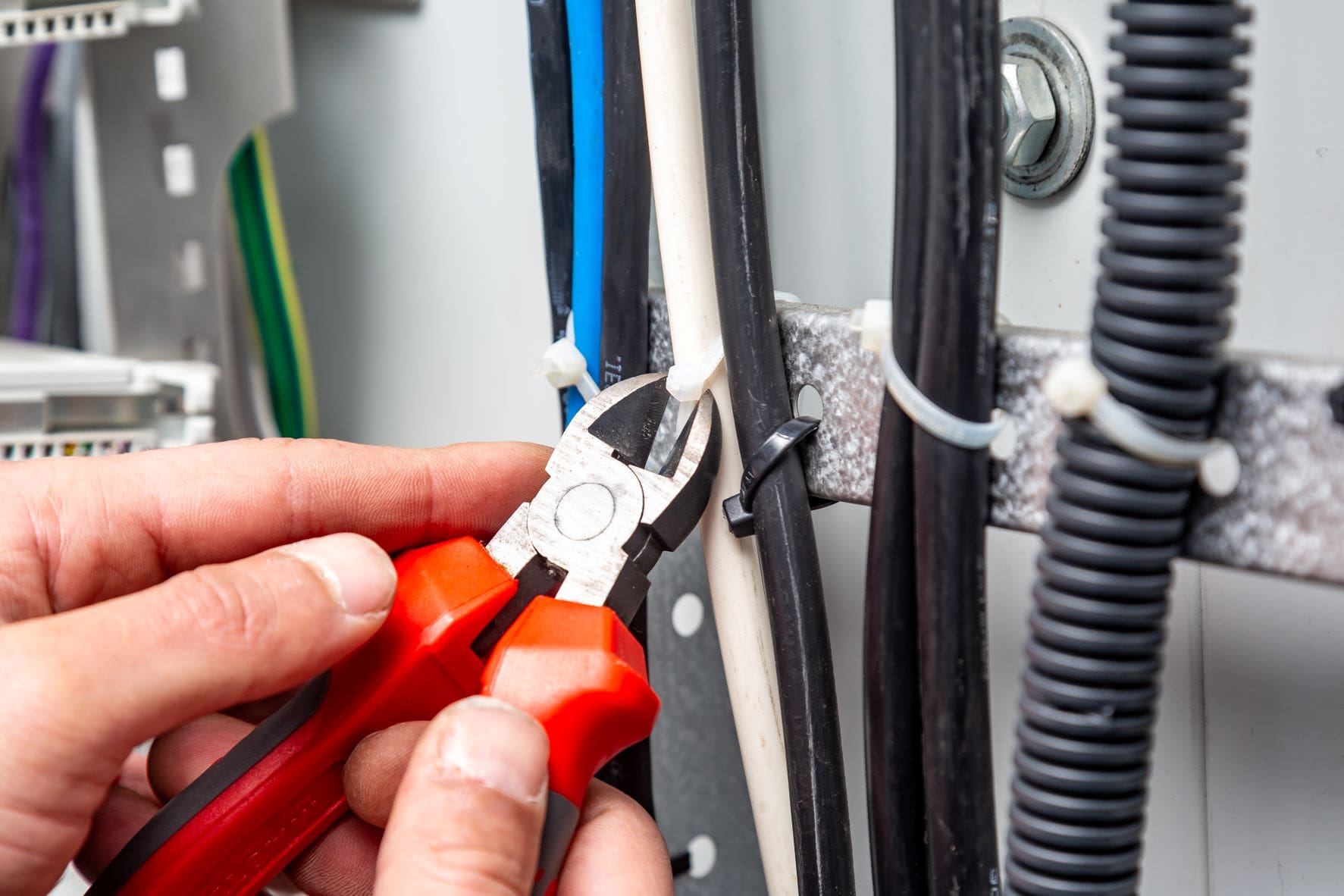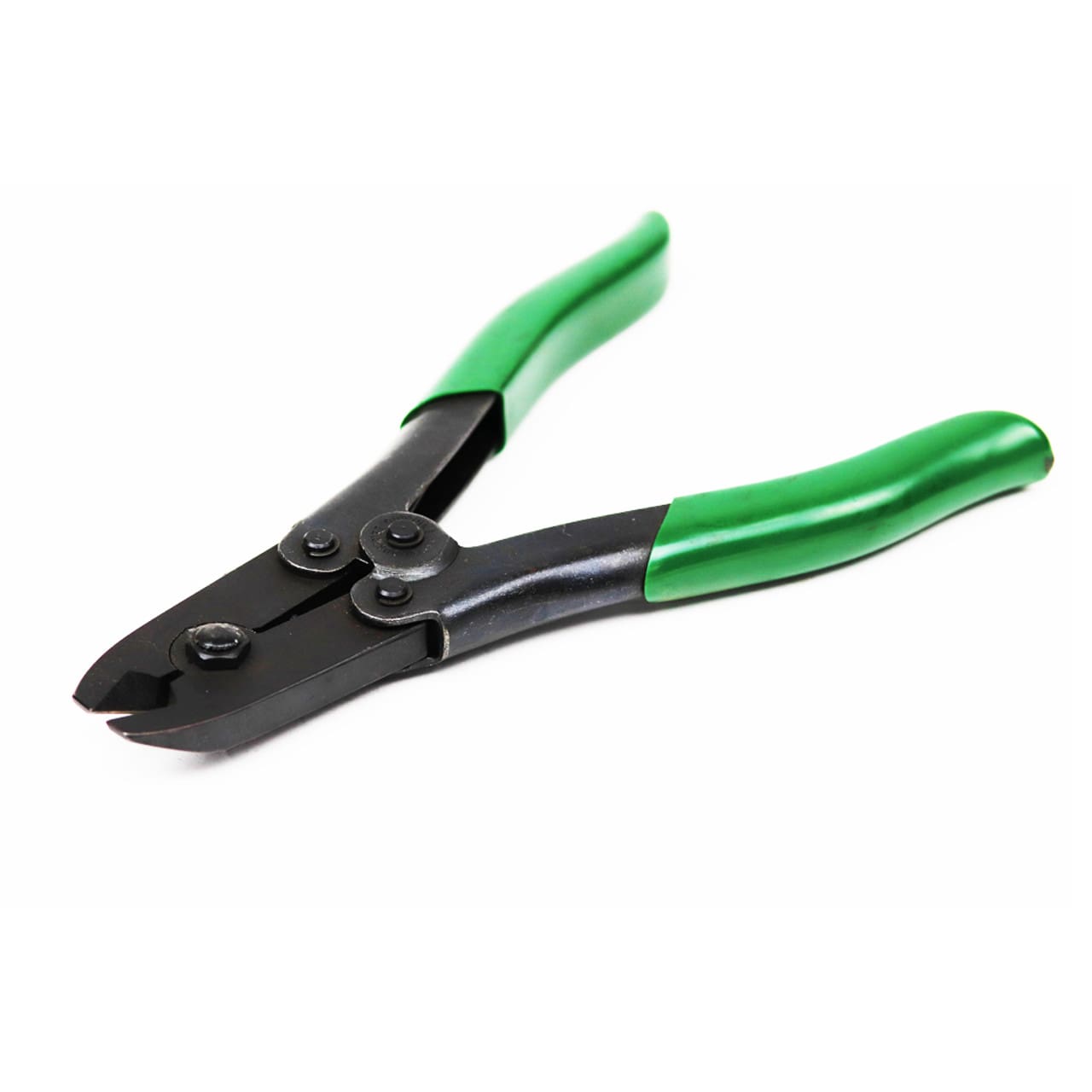A Guide To Choosing The Best Wire Cutters
Wire cutters are a staple item in almost every toolbox out there – whether you’re a professional hardware craftsman or a home do-it-yourself (DIY) enthusiast, chances are that a pair of reliable wire cutters is a part of your working tools arsenal. Having the right wire cutter at your disposal can help you make quick, clean cuts in most types of wire you may face including brass, copper, building wire, steel and so much more.
That said, with numerous wire cutters available on the market today, how do you choose the right one for your everyday needs?
This feature aims to share an easy-to-follow purchase guide for wire cutters. After going through this post, you’ll hopefully be able to pick the best wire cutters that make the most sense for your regular tasks.

What Are Wire Cutters
A wire cutter is generally a small handheld tool novice home improvement project takers to seasoned professionals really appreciate. Its most basic application is to cut cables and wires of different materials including those used in electrical wiring.
Despite its name, a wire cutter isn’t only used for cutting. Most cutters are designed for multiple uses: you can use them to bend or compress metal items, particularly when crimping connections in electronic and electrical applications. In addition, some wire cutters can also be used to tighten screws, bolts, and other metal items.

Choosing The Best Wire Cutters: 4 Tips To Consider
Buying the best wire cutters isn’t as simple as picking the first one you find. There are several factors you need to consider to ensure that the wire cutter is suitable for your regular home improvement activities. Indicated below are a number of considerations you should keep in mind when finding the right wire cutter.
1. What Wires Do You Need To Cut
In general, you don’t have to worry about choosing a very specific wire cutter if you’re working with standard wires and cables with a small metal like copper. Most wire cutters you see today in stores can cut through them.
However, if you’re working on something harder or for more specific tasks such as guitar wires, then you’ll need to find a wire cutter that’s specifically designed for that job. If you don’t want to ruin your wire cutter, always remember that it should be stronger and harder than the wire it needs to cut.
Also, if you intend to work with various wiring and cables, then you’ll need to buy different types of wire cutters.
2. Best Wire Cutters for Hard Wire
Not all cutters can cut through hard wire, and if they’re not designed for it, then they’ll go blunt within a few tries, wasting your time and money. Choosing a tool like these heavy duty wire cutters from Maun means you won’t have to worry about that, as they have precision ground-cutting jaw edges that are hardened to HRC 43 for durability. Similar products from different makers also exist today.
 Heavy Duty Wire Cutters from Maun
Heavy Duty Wire Cutters from Maun
Types Of Wire Cutter
As mentioned before, there are different types of wire cutters suitable for different tasks. Some of the most common types of wire cutter may include:
-
Linemen’s Wire Cutters
A linemen’s wire cutter is the most commonly used type of wire cutter and is often utilized by electricians. It’s usually called a combination wire cutter thanks to its versatility.
This type of wire features a sharp cutting edge with a firm surface that provides you with a strong grip. It can easily cut through steel fencing wires, thick nails, and steel screws without any issue.
Other than cutting wires, its wide and flat jaws can grip objects and allows for bending cables and wires. As its name implies, a linemen wire cutter often features insulated handles so you can work safely with electrical wirings.
-
Needle-Nose Wire Cutter
The needle-nose wire cutter got its name from the way it’s shaped. It features a thin and narrow sharp edge suitable for cutting fine and thin wires. Its slenderness makes it more usable when working in tight or cluttered spaces.
Furthermore, this type of cutter also makes it easier to bend and insert cables or wires into narrow spaces. Because of its shape, a needle-nose wire cutter is also used by artisans, jewelry designers, and network engineers to bend, cut, and reposition small wires.
-
Locking Wire Cutters
A locking wire cutter is a staple in every carpenter’s toolbox. It features a locking mechanism typically located on its handle. This allows you to get a better grip on the wire or a metal sheet before cutting.
-
Side Cutters
Commonly known as diagonal wire cutters, a side cutter allows you to get a clean and smooth finish when cutting wiring. As its name implies, it cuts diagonally.
A diagonal wire cutter is typically used for cutting softer materials such as copper electrical conductors or aluminum wires. But in terms of harder materials, you’ll need to look for another type of cutter.
Side cutters are also known to leave cutting marks on the wire since their jaws force the wire or cable to break instead of cutting through the material.
-
Bolt Cutters
Designed to create a huge amount of torque, a bolt cutter is often used for cutting metal. It’s suitable for snipping bolts off containers and cutting thick leads and chains easily. Because of their heavy-duty action, bolt cutters are often used in the construction industry.
-
Hydraulic Cutters
Another heavy-duty wire cutter, a hydraulic cutter is often used on different types of solid bars, wire ropes, and thick conductors. It features a guillotine-style head shear that helps reduce jams. Plus, it can easily chop aluminum or copper power cables as well as overhead conductors.
As a powerful tool, a hydraulic cutter is often used by companies in the electrical and power utility industry.
3. Check The Blade Material
In general, wire cutter blades are usually produced from ‘tool steel’ and may or may not be alloyed with other metals. Tool steel is an iron combined with carbon to increase hardness, durability, and endurance suitable for hand tools. Yet some manufacturers may also use other alloys such as nickel, chromium, and vanadium to change their endurance and hardness.
The wire cutters made from normal tool steel are cheaper and have a good level of durability. Nevertheless, cutters blades infused with extra alloys tend to be more expensive, due to their increased durability and higher resistance to rust and corrosion.
4. Consider The Handles
Lastly, you want to consider the handles in buying the best wire cutters available. In this case, grip materials and length play a critical part in how efficient the cutter will be.
Longer handles offer you more leverage to make smooth cuts, but it’s not suitable for tight or limited locations. Meanwhile, a smaller handle allows you to work on tighter areas but requires greater force to cut.
In general, most people opt for a 4-inch handle that fits comfortably on their hand, but experts suggest a handle length of up to 5.5-inch for maximum comfort.
In addition, the handle should feature strong grips made of various polymers including plastic and rubber.
Conclusion
Having the right tools within an elbow’s reach allows for quick and efficient work. In terms of working with any kind of wire, the right wire cutter allows you to snip away with ease.
Hopefully, the pieces of information above have given you an idea of how to choose the best wire cutter according to your needs.



